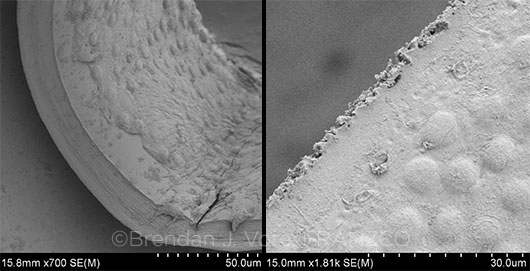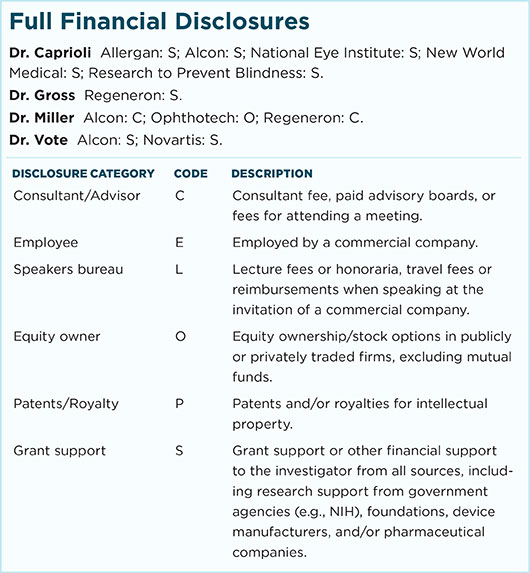Download PDF
Although it entered the market a few years ago amidst high expectations, femtosecond laser–assisted cataract surgery (LCS) did not prove superior to phacoemulsification cataract surgery (PCS) in an Australian prospective multicenter comparative case series.1 The study evaluated postoperative visual and refractive outcomes in a total of 1,876 eyes 6 months after femtosecond LCS or PCS.
Mixed outcomes. The letter gain in best-corrected visual acuity (BCVA) was lower in LCS cases than in PCS cases, although mean BCVA was slightly better in the LCS cohort, a finding that the authors attributed to baseline differences between groups. In comparison with LCS eyes, a higher percentage of PCS eyes were within 0.5 D of the preoperative refractive goal (LCS, 72.2%; PCS, 82.6%).
Complications such as capsular tears, perioperative corneal haze, epithelial defect, Descemet membrane trauma, ocular hypertension, and corneal and cystoid macular edema were all higher with LCS.
 |
PCS VS. LCS. Left, smooth edge of manual capsulorrhexis. Right, laser capsulotomy shows jagged edge, with pits and tags.
|
Cost-effectiveness. “Without a significant visual benefit over PCS and with complication rates at similar levels or worse for LCS, there is little benefit in using LCS for most cataract patients,” said coauthor Brendan J. Vote, FRANZCO, clinical associate professor at the University of Tasmania, who was an early adopter of LCS. “Our costeffectiveness analysis2 revealed that LCS does not reach internationally accepted thresholds to be considered a cost-effective intervention.”
LCS benefits some patients. Although statistically significant evidence is currently lacking, he said, certain complex cases—accounting for less than 5% to 10% of all cataract surgeries—may achieve benefit from LCS. These include eyes with low endothelial cell counts or markedly brunescent cataracts, especially with zonular compromise. These are the only subsets of patients in which Dr. Vote now performs LCS.
—Annie Stuart
___________________________
1 Ewe YP et al. Ophthalmology. 2016;123(1):178-182.
2 Abell RA et al. Ophthalmology. 2014;121(1):10-16.
___________________________
Relevant financial disclosures—Dr. Vote: None.
For full disclosures and disclosure key, see below.

More from this month’s News in Review